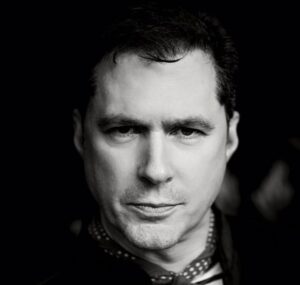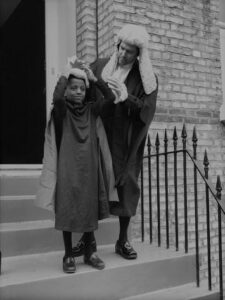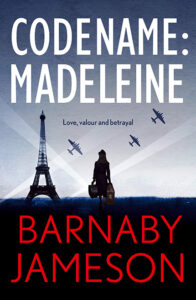
Photo credit Cambridge Jones
Who signs up to the Process whose life is sunbeams and rainbows? No one, I imagine.
Whatever motivates someone to spend a week with a group of perfect strangers stripping back every vestige of pretence must, by its nature, be pretty seismic. Peoples’ reasons for enrolling are limitless. They might – or might not – include perfectionism, fear of failure, emotional vacancy, melancholy, serious accidents, addiction in a relative. The list goes on.
It was a windy, autumnal night that saw me knock on the door of Florence House – Hoffman’s Sussex venue – the lapels of my coat flapping in the sea breeze. With a core family relationship in intensive care and with a nagging worry that I was neglecting my work, I had been in better fettle. It was when the door was opened by one of the facilitators – wise, warm, compassionate – into the firelight that I realised I had come to a place where I could unpack a kitbag of worries. I signed in along with some of the other apprehensive-looking strangers with whom I was to be spending the next week. Though I did not know it at the time, I was among people who would play an important role in my life during and after the Process.
The following day we were divided into smaller groups. The facilitator of my group was another woman of wisdom, experience and deep compassion. So began one of the most unusual, arduous, surprising and rewarding weeks of my life.

Barnaby and his son, affectionately known as ‘little wig’
What is it about confronting one’s demons en masse? Hoffman taps into a powerful tradition: the strength and support of the group. The fellowship that is the backbone of ‘anon’ programs the world over. As a barrister it made me think of jury service. Strangers plucked at random to carry out a forensic enquiry into the truth – with far-reaching consequences for a fellow citizen. A solemn duty which juries – in my experience – perform with notable care and diligence. The Process is a kind of jury service. The difference is that it’s a forensic enquiry into the self in which the individual and the group participate. The other crucial difference is that there’s no judgment. No finding of guilt or innocence. Just the honesty and solemnity of the enquiry, the truth uncovered and offered for reflection and understanding.
My group included a woman in her late fifties, Catherine – she’s allowed me to mention her name – whose wise eyes reminded me of Charlotte Rampling. She had spent a lifetime in publishing and was clearly a formidable force in the book world. She told me after the course I was the Mr Darcy of her Process – unapproachable and rather aloof! But the Process, she admitted, brought out the human side of Mr Darcy by the end. There was also Clarissa – who’s also allowed mention of her name – who reminded me of the actress Gal Gadot. And, of course, my cheery Process ‘buddy’, Franco. One of the common features of Hoffman that I’ve found is that everyone thinks theirs was the best Process group. Certainly that was my feeling. In Catherine and Clarissa I’d chanced upon two extraordinary fellow travellers.
Hoffman strips away people’s masks, no matter how stubbornly they stick to the face. There is something about going through the Process as a group that creates cast-iron bonds between the participants. There must be parallels with army recruits who have all had to roll around in the mud together. No one is spared. And having witnessed one’s own and everyone else’s unmasking, something profound and inexplicable happens when the Process ends. That’s why Hoffman graduates tend to be easy in each other’s company. Everyone has seen. Nobody has judged.
What did a week at Florence House teach me? The power of fellowship. The humility of seeing one’s own demons and those of others – sometimes a good deal stranger and more threatening than one’s own. The power of seeing behavioural patterns entrenched from childhood. The possibility of freedom from perfectionism. I also discovered a good deal about the positives and negatives of my work. On the plus side, the excitement of being involved in high-profile cases and the privilege of working with some of the best police officers in the country. On the minus side the near-total absorption, the lack of balance, the fear of failure. I also realised that my legal work – mainly using the rational, left-hand brain – was closing off the more creative, free-flowing right-hand side of my brain.
I made a vow, on leaving Florence House, that I would finish the novel that I had been tampering with for the best part of five years. Lockdown gave me a clear shot at the project – a historical novel set between 1914 and 1944. I sent the unedited finished article to Clarissa. Despite having an army of small children she read the entire manuscript. And the look of almost tearful enthusiasm in her eye gave me the courage to send it to Catherine. True to her word, Catherine read the manuscript from beginning to end. And over half a dozen zoom sessions they helped knock the book into a shape worthy of publication.
 Fast forward to July 2022. My debut novel Codename: Madeleine: Love, Valour and Betrayal was published. It was hailed – to my surprise – as ‘a magical debut,’ by author Giles Foden and ‘compelling’ by broadcaster Emily Maitlis. ‘Judge’ Rob Rinder called it a ‘tour de force.’ The launch was attended by half a dozen of my Hoffman gang and my son Firo, to whom the book is dedicated. Other ‘Hoffies’ who couldn’t make it were present in spirit and have been a tower of support and encouragement.
Fast forward to July 2022. My debut novel Codename: Madeleine: Love, Valour and Betrayal was published. It was hailed – to my surprise – as ‘a magical debut,’ by author Giles Foden and ‘compelling’ by broadcaster Emily Maitlis. ‘Judge’ Rob Rinder called it a ‘tour de force.’ The launch was attended by half a dozen of my Hoffman gang and my son Firo, to whom the book is dedicated. Other ‘Hoffies’ who couldn’t make it were present in spirit and have been a tower of support and encouragement.
Codename: Madeleine features a real-life heroine cut from Hoffman cloth – the harpist daughter of a Sufi mystic who transformed into one of the bravest agents of World War II. Her mission to occupied Paris in 1943 meant facing down almost unimaginable fear: the fear of capture by the Gestapo. I salute Madeleine. I also salute all those I met at Florence House without whom Codename: Madeleine would have languished, half-written, in the farthest corner of my attic.
We’d like to thank Barnaby for sharing his Process Story. Codename: Madeleine is available in paperback, as an e-book and as an audiobook read by actress Olivia Williams from Amazon, here or via Barnaby’s website: barnabyjameson.com





 Sign up to receive monthly newsletters from Hoffman
Sign up to receive monthly newsletters from Hoffman